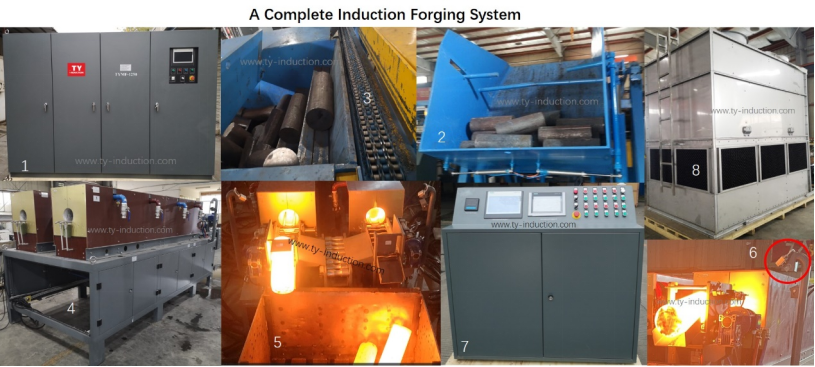Login

Login

Choosing the right induction forging machine is a crucial decision for manufacturers who want to improve production efficiency, precision, and energy use. An induction forging machine heats metals through electromagnetic induction, enabling the forging of materials without direct contact with the heat source. When selecting an induction forging machine, it's essential to consider several factors to ensure optimal performance. Here are four key pieces of advice to guide you in choosing the best induction forging machine for your needs.
The size and capacity of the induction forging machine are critical factors in determining whether the machine will meet your production needs.
Workpiece Size: Ensure that the machine is suitable for the size of the materials you intend to forge. Induction forging machines come in various sizes, and the coil design must match the dimensions of the workpiece to ensure uniform heating.
Production Volume: Assess your production needs. If you require high throughput, you’ll need a machine with higher capacity and faster heating cycles. On the other hand, for smaller-scale or specialized forging, a machine with more precise control might be necessary.

Workpiece dimensions (length, width, and thickness).
Maximum heating capacity (temperature range).
Frequency of use (batch production or continuous operation).
Energy efficiency is one of the key advantages of induction forging. Induction heating is more energy-efficient than traditional heating methods because it directly heats the material, reducing energy wastage.
Power Rating: Look for a machine with an optimal power rating that matches your production requirements. Machines with higher power ratings can heat materials faster, but they may consume more energy. It's essential to balance power consumption and energy savings.
Efficiency Features: Some induction forging machines come with built-in features like variable power control, which allows you to adjust the heating power according to the type of metal or workpiece being forged.
Power consumption per unit of metal forged.
Energy-saving features such as automatic power regulation.
Long-term energy cost savings versus initial investment.
Precision is a crucial aspect of induction forging, as you need to ensure that the metal is heated to the right temperature for forging. An induction forging machine should have precise temperature control to avoid overheating, which can lead to material defects.
Temperature Control: Look for machines with advanced temperature monitoring and control systems. A machine with real-time temperature adjustments will help prevent errors and ensure consistent results.
Coil Design and Adjustability: The design of the induction coil is vital for uniform heating. Choose a machine with a customizable coil or one that has multiple coils for different workpieces to ensure flexibility in your production process.
Temperature regulation accuracy.
Coil design options (customizable or interchangeable).
Real-time monitoring systems for consistent heat application.
An induction forging machine is a long-term investment, so it's essential to choose one that is built for durability and requires minimal maintenance. Machines with low maintenance needs will reduce downtime and increase productivity.
Quality of Build: Look for machines made from high-quality materials, such as high-grade steel, which can withstand the wear and tear of industrial use.
Ease of Maintenance: Opt for machines that offer easy access to key components for repairs and routine maintenance. Additionally, consider whether the manufacturer offers service and maintenance contracts, which can be a cost-effective option in the long run.
Material quality and machine robustness.
Availability of spare parts and technical support.
Maintenance schedules and ease of servicing.
Choosing the right induction forging machine requires careful consideration of several factors, including size, energy efficiency, precision, and durability. By taking into account your production requirements, energy-saving goals, and the machine's long-term reliability, you can make a well-informed decision. With the right equipment, you’ll improve both the quality of your forged products and your production efficiency.
If you’re ready to invest in an induction forging machine, keep these tips in mind to make the best choice for your operations. With the right machine, you can achieve consistent, high-quality forged parts while optimizing energy use and minimizing maintenance costs.
95 0 0
Join Us

Comments
All Comments ( 0 )